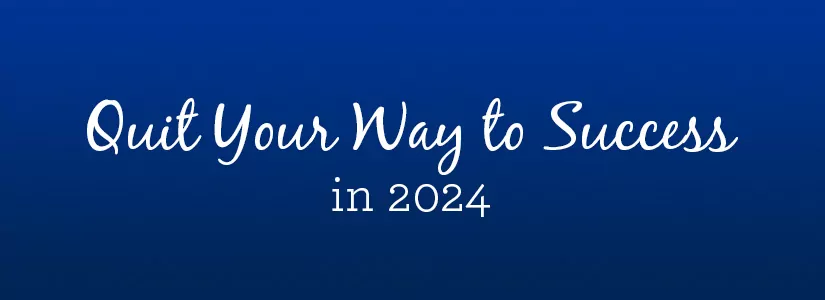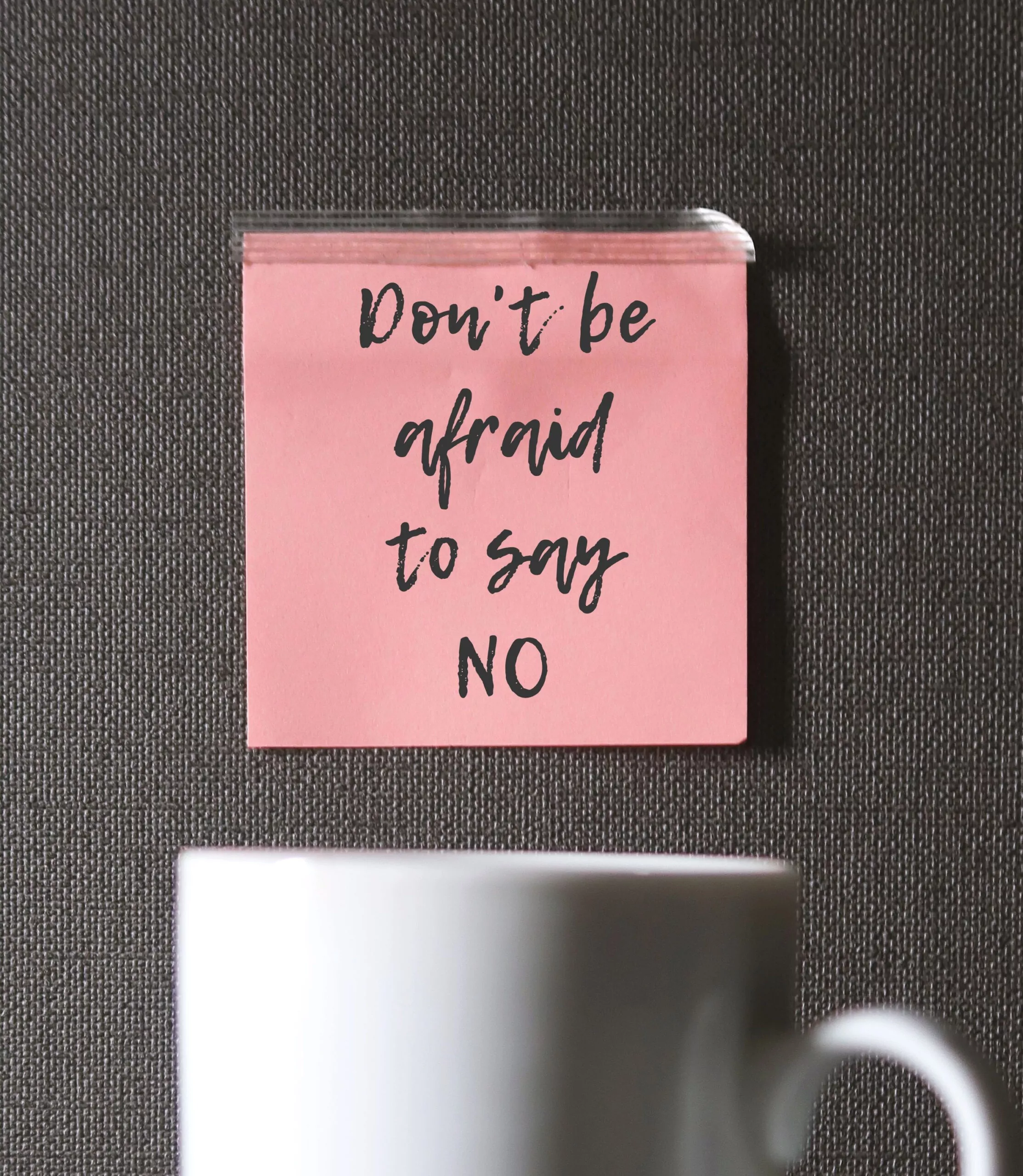Confessions of a Quitter
I’ve never thought of myself as a quitter—in business as much as in life. Like me, you probably think it’s somewhat antithetical to think that doing starts with not doing. But if well-being is on your New Year resolution list, you should consider this very philosophy. Whether you’re committed to start taking care of yourself or continuing to (as you should), reflections from my personal road from “Yes to No” will help you navigate your journey to a higher level of well-being.
Balance Doesn’t = Perfection
The beauty of a new year is the chance to start fresh with a new set of resolutions that we hope will improve us—our lives and the lives of those we touch. Most resolutions are about adding more to our already long do list, which just sets us up for failure.
After failing year after year to execute many of my resolutions, I finally saw the light. About 6 years ago I was asked to step up and take the role of board chair for a non-profit agency that was going through a significant transition. This position also included working strategically with a sister agency (and its board chair) to create one combined agency. It was an honor and responsibility that I could not fail — not fail the organization(s), not fail at the business that I lead, and not fail my family and friends.
As I said yes, I realized this would be life-altering for the duration of the two-year commitment. I took a big step back to project how much time this responsibility was really going to take. After some careful evaluation, my projection was 10 hours per week – at a minimum. Where was I going to find that kind of time?
I am a small business owner, already involved in many business and volunteer commitments, and did not want to starve myself of family and friends. I understood the concept of a “stop doing” list but never actually tried it. While taking on this new assignment, I wanted to protect my own well-being psychologically, physically, and emotionally. I knew I had to do this, but what was I signing up for?
There are only 24 hours in a day, 16 of which we should limit to “doing” mode for a healthy balance. I realized that in order to put the pedal to the metal for this non-profit, it meant that other areas would likely be compromised.
The stop-doing list
A stop-doing list is literally that: creating a list of every activity/habit/practice and commitment you have, evaluating them for the value/meaning they add to your life and determining which of those activities to give up to make room for something else.
Considerations for saying “yes” to “no”
Once I succumbed to the realization that I would be overextended, overwhelmed, and overcome by taking on too many to-dos, I began composing a current “doing” list and next to it a “stop doing” list. Nothing was off the table: volunteer commitments, professional commitments, personal commitments – just doing what I was used to and comfortable with.
How did I determine what to put on my “stop doing list”? It was a two-step process. First, I thought about my values: what brings meaning to me, and winnowed out activities that were out of sync with them. These were largely those I would describe as uninspiring.
The more difficult part was step two: considering which activities had expired—those that were no longer of interest or purposeful in fulfilling my long-term goals. What had become too comfortable and weren’t giving me value or providing value to others?
I asked myself which ones were simply there because I had once had space in my schedule and which ones were helping me reach long-term goals or providing extreme satisfaction—an ROI of sorts. In addition to putting these on my “stop doing” list, I considered delegating tasks that were necessary but not producing ROI.
WARNING: It’s really hard to stop “doing”. Our culture values “busy”,
equating it with being productive. But the truth is this: if you aren’t
making progress toward your long-term goals, you’re just
spinning your wheels.
Honest reflection, accountability, and persistence
I wish I could tell you that getting to “no” is an easy process, but it takes fortitude to scrutinize each activity/task and ask, “Why am I doing this?” At first, when I didn’t have a reasonable answer, I reluctantly moved it to the “stop doing” list. I also considered how much energy I was spending on each activity/task and if the reward justified the expenditure. As I navigated through the process, I became more confident in my selections.
I have continued this “stop doing” practice. It has, in part, contributed to protecting my well-being and continually helps me open up space for new opportunities. Are you ready to take this on? Not sure how to get started? Here are some ideas…
Getting started on stop doing
- Ask yourself what you want to accomplish in 2024.
- Ask what possible new actions/tasks you want to take on to get there and understand the time investment needed for these new actions/activities.
- Consider what and who energizes you or saps you of energy.
- Ask yourself which activities could you remove that don’t contribute to achieving your objectives, so you can make room. Here are a few ideas to consider paring down:
- Digital activities:
- Are you on email too frequently, which is slowing you down and disrupting productivity? Consider sticking to a schedule of email checks and limit checks to 15 minutes.
- Are you spending too much time mindlessly browsing social media? Consider limiting social media to a few times a day during scheduled breaks.
- Do you interrupt tasks by chasing shiny objects? Consider making a note of new ideas or tasks that are unrelated to your focus and get back to them when time opens up.
- Do you tend to overthink or overcomplicate tasks? Consider overcoming your quest for perfection by acting and course correct later if needed.
- Digital activities:
- When in doubt or conflicted about a request, instead of replying “yes”, automatically, consider saying “I’m honored you asked. Then depending on the ask go on with:
- It is not something I can take on at this time, please consider asking me at another time.
- It is not something I can take on. You might consider asking…and share someone else in your network that might be good at that ask.
- I appreciate the opportunity and it is not a good fit for me.
If you are at all like me, it’s not easy to provide any of the answers to the issues above, but doing so will protect your own well-being and keep you on the path to reach your goals.
Start getting ready to make 2024 more meaningful, more fulfilling — and much saner — by prioritizing your well-being. Let me know how you’re doing and compare notes… Reach out by email or call me 952-933-8365.
Wishing you happy celebrations and a year ahead filled with well-being!


